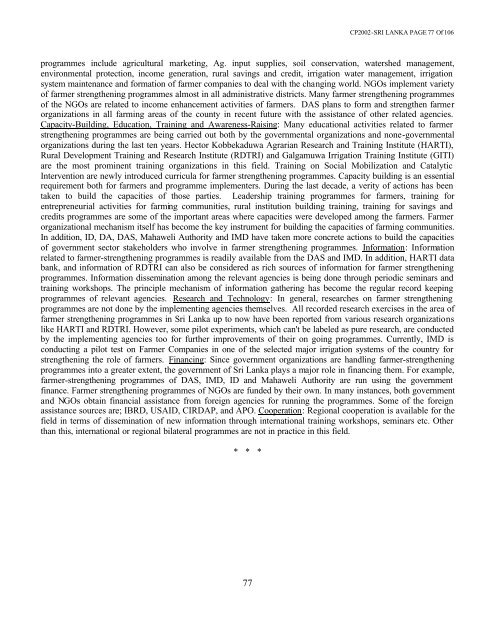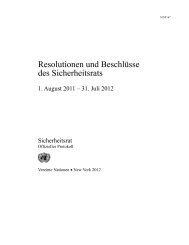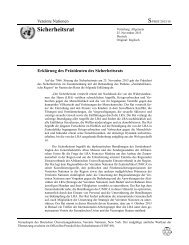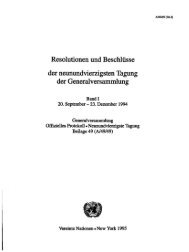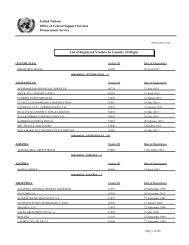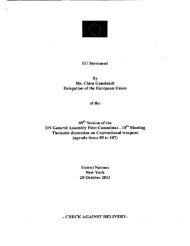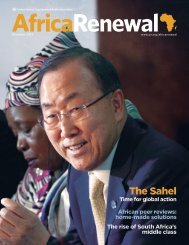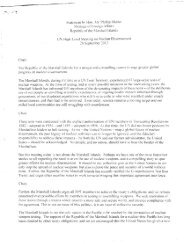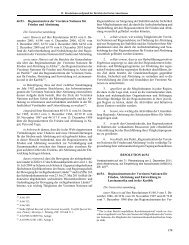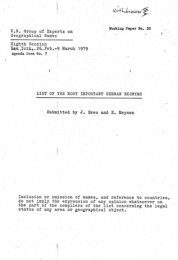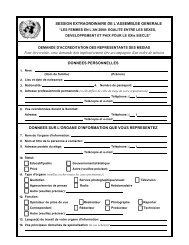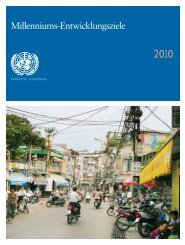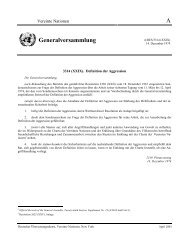SRI LANKA COUNTRY PROFILE
SRI LANKA COUNTRY PROFILE
SRI LANKA COUNTRY PROFILE
Create successful ePaper yourself
Turn your PDF publications into a flip-book with our unique Google optimized e-Paper software.
77<br />
CP2002-<strong>SRI</strong> <strong>LANKA</strong> PAGE 77 Of 106<br />
programmes include agricultural marketing, Ag. input supplies, soil conservation, watershed management,<br />
environmental protection, income generation, rural savings and credit, irrigation water management, irrigation<br />
system maintenance and formation of farmer companies to deal with the changing world. NGOs implement variety<br />
of farmer strengthening programmes almost in all administrative districts. Many farmer strengthening programmes<br />
of the NGOs are related to income enhancement activities of farmers. DAS plans to form and strengthen farmer<br />
organizations in all farming areas of the county in recent future with the assistance of other related agencies.<br />
Capacity-Building, Education, Training and Awareness-Raising: Many educational activities related to farmer<br />
strengthening programmes are being carried out both by the governmental organizations and none-governmental<br />
organizations during the last ten years. Hector Kobbekaduwa Agrarian Research and Training Institute (HARTI),<br />
Rural Development Training and Research Institute (RDTRI) and Galgamuwa Irrigation Training Institute (GITI)<br />
are the most prominent training organizations in this field. Training on Social Mobilization and Catalytic<br />
Intervention are newly introduced curricula for farmer strengthening programmes. Capacity building is an essential<br />
requirement both for farmers and programme implementers. During the last decade, a verity of actions has been<br />
taken to build the capacities of those parties. Leadership training programmes for farmers, training for<br />
entrepreneurial activities for farming communities, rural institution building training, training for savings and<br />
credits programmes are some of the important areas where capacities were developed among the farmers. Farmer<br />
organizational mechanism itself has become the key instrument for building the capacities of farming communities.<br />
In addition, ID, DA, DAS, Mahaweli Authority and IMD have taken more concrete actions to build the capacities<br />
of government sector stakeholders who involve in farmer strengthening programmes. Information: Information<br />
related to farmer-strengthening programmes is readily available from the DAS and IMD. In addition, HARTI data<br />
bank, and information of RDTRI can also be considered as rich sources of information for farmer strengthening<br />
programmes. Information dissemination among the relevant agencies is being done through periodic seminars and<br />
training workshops. The principle mechanism of information gathering has become the regular record keeping<br />
programmes of relevant agencies. Research and Technology: In general, researches on farmer strengthening<br />
programmes are not done by the implementing agencies themselves. All recorded research exercises in the area of<br />
farmer strengthening programmes in Sri Lanka up to now have been reported from various research organizations<br />
like HARTI and RDTRI. However, some pilot experiments, which can't be labeled as pure research, are conducted<br />
by the implementing agencies too for further improvements of their on going programmes. Currently, IMD is<br />
conducting a pilot test on Farmer Companies in one of the selected major irrigation systems of the country for<br />
strengthening the role of farmers. Financing: Since government organizations are handling farmer-strengthening<br />
programmes into a greater extent, the government of Sri Lanka plays a major role in financing them. For example,<br />
farmer-strengthening programmes of DAS, IMD, ID and Mahaweli Authority are run using the government<br />
finance. Farmer strengthening programmes of NGOs are funded by their own. In many instances, both government<br />
and NGOs obtain financial assistance from foreign agencies for running the programmes. Some of the foreign<br />
assistance sources are; IBRD, USAID, CIRDAP, and APO. Cooperation: Regional cooperation is available for the<br />
field in terms of dissemination of new information through international training workshops, seminars etc. Other<br />
than this, international or regional bilateral programmes are not in practice in this field.<br />
* * *


